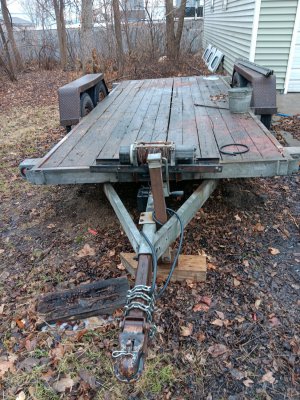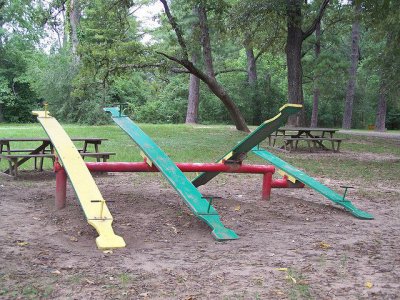Last year I bought a 5x8 utility trailer and upgraded the heck out of it while teaching myself how to weld. Well now I enjoyed that so much I want to try something bigger.
I plan on building a pressure washing, hydroseeding, and fire fighting trailer unit, gonna have a skid mount hydroseeder, a big pressure washer, a water pump, and 2 ibc totes full of water.
The majority of the weight on the trailer will be about 5500lbs of water when its full (assuming 2 full 330 gallon ibc totes), and that plus all the equipment I figure to be safe that's about 7000lbs total, so I'm thinking an 8000 or 9000lb axle.
With leaf springs do I get them by the weight rating on the spring or on the axle? Would I get 2 8000lb springs for a trailer with a 8000lb axle, or would I get 2 4000lb springs for it? What do y'all suggest for the main frame / body of the trailer? Is C channel enough or should I go for square tubing? What thickness? I'm really new to metalworking in general and want to make sure to overbuild everything for safety since I'll be driving it on the road. If I need 3 1/4" angle iron braces I'll put 4 3/8" braces...
Is there some guide or source material I can read that will teach me how to calculate the weight a given profile needs to permanently deform? I want to learn how to pick/calculate what thickness material I need for a given project.
First of all, what are you going to pull the trailer with?
No sense building a trailer that has a max rating higher than the rating of your tow vehicle.
Secondly, at 7000+ you need a tandem axle trailer. Period
Trailer axles generally come in different weight ratings. Most tandem axle car haulers will use 3500 lb or 7000 lb rated axles.
Tandem 3500 lb axles will give you a 7000 capacity trailer.
7000 lb axles will give you a 14000 lb tandem trailer.
But remember, those weights are for Combined weight of the trailer plus the load.
The cost of materials for a 14K trailer will be more than TWICE the cost of a 7K trailer.
Think about it: you will need the axles, brake kits, springs, shackles, walking beams, coupler (2" for 7k, 2 5/16" for 14k)
And check your local laws to see if you need the breakaway kit. You will need the brake controller in your tow vehicle. Plus lights, pigtail, wiring, safety chains, etc.
I have a 14k 16' car hauler. It requires load range E rims and tires (8 bolt).
It weighs about a ton. Empty.
That is a lot of steel to buy.
In today's hyper litigious world are your welding skills up to that task? Can you engineer your trailer with appropriate materials so the trailer componants are sized properly? Not too light so it breakes somewhere and not too heavy so you are hauling around unnecessary weight?
I get the love of a project - especially the love of a good welding project as I'm an old stick man myself that could lay in some pretty good 7018 welds in my day.
But now, since my skills aren't what they were, with the prices of steel and all the componants, and the laws, and the blood sucking attorneys, I think I would look for a decent used trailer if I needed one and pass all the gotchas on to someone else.



